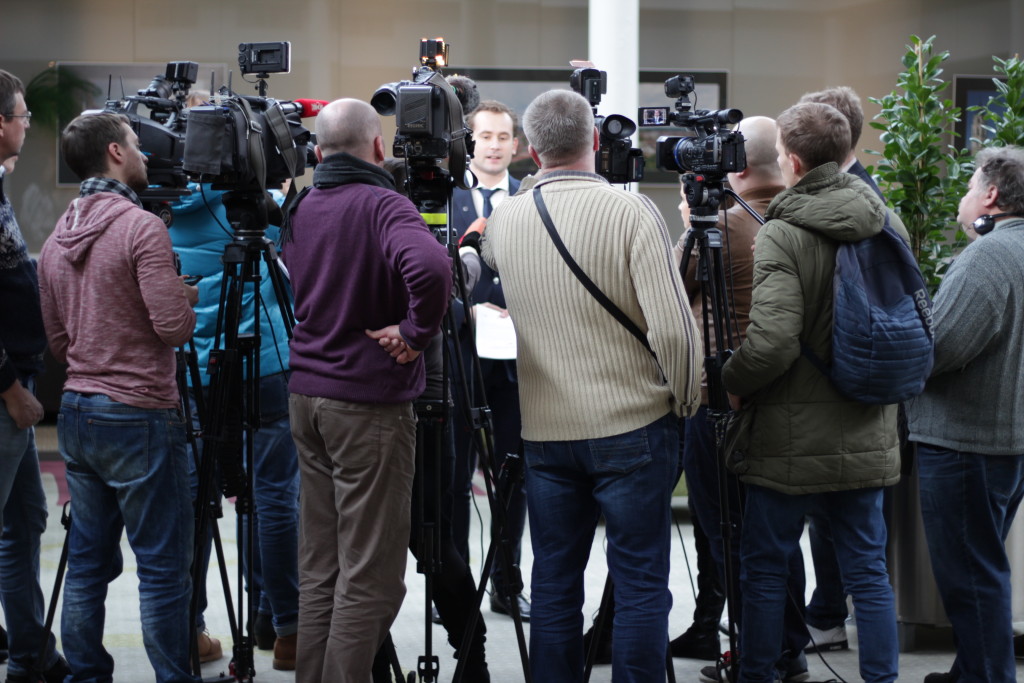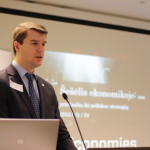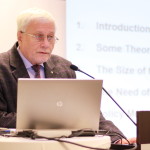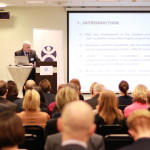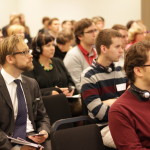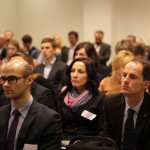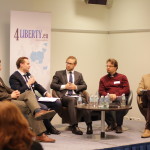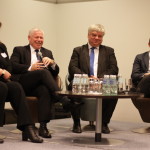November 24, 2015 – The shadow economy in Lithuania is contracting but it remains widespread. A third of people in Lithuania have friends or relatives who work in the shadow labour market and receive part of their wage or their entire wage “under the table.” People in Lithuania tend to justify all forms of shadow economic activity. On average one in third see nothing wrong in working illegally or receiving part of the wage “under the table” and buying or selling smuggled cigarettes, alcohol, fuel or other underocrded goods. People think that the main reason is quite simple and it is too high taxation. These findings were elicited through representative population surveys conducted in six countries – Lithuania, Latvia, Estonia, Poland, Sweden and Belarus – by the Lithuanian Free Market Institute (LFMI) with international partner think tanks and experts earlier this year. The results of the research are being presented to an international conference “Screening Shadow Economies: From Causes to Policy Strategies” organized by LFMI today in Vilnius.
“Out of all countries under analysis people in Lithuania most often think that the key driver of the shadow economy is too high taxation. Almost seven in ten people in Lithuania think so. This comes as no surprise, as the tax burden on labour relationships alone constitutes as much as 39 percent,” – LFMI’s Vice-president Vytautas Žukauskas says.
The surveys have revealed the extent of undeclared labour. Three in ten people in Lithuania admit to having friends or relatives who have worked in the shadow labour market in the past year. In most cases these people have job contracts but receive part of their wage as an “envelop wage.” In Latvia and Poland the share of the population who have friends or relatives in the shadow labour market is even higher, 36 and 33 percent respectively. In Estonia this proportion is 26 percent, and in Sweden it stands at a mere 8 percent. Shadow employment is the most widespread in construction.
“As many as seven in ten Lithuanians who are engaged in the shadow economy believe that they will not be caught. For example, in Sweden, where the shadow economy is much smaller, the situation is the opposite. A total of six in ten of those who work in the shadow labour market think that the likelihood of detection is high. This shows that it is more important not to tighten penalties but to ensure that the liability for shadow economic activity cannot be avoided,” – Vytautas Žukauskas says.
Lithuania and Latvia have the most widespread markets for undeclared goods and services of all the countries under analysis. In the past year two thirds of Lithuanians (63 percent) bought undeclared goods and services at least once, even though they knew or suspected that the seller did not declare the sales revenues. Almost a half (42 percent) of the population bought goods or services even though they knew or suspected that the seller operated illegally and did not pay taxes.
In most cases people in Lithuania buy undeclared foodstuffs, clothes, cigarettes, fuel, auto repair services and beauty services. Interestingly, unlike in other countries, medicine and food supplements are amongst the most popular undeclared goods.
“The experience of other countries shows that the focus of the governments should be not on tightening disclosure or prosecution but reducing the causes of the shadow economy. People buy undeclared goods and services because legal products are too expensive, as taxes make prices too high compared with the income level. The same can be said about undeclared labour. The impact that tax rates have on the spread of the shadow economy depends on the level of income. When the same tax rate is levied on lower income, the incentive for shadow economic activity is higher. The same goes for undeclared purchases. If taxes make a good too expensive, people look for ways to avoid taxes and tend to justify undeclared purchases,” – Vytautas Žukauskas notes.
International experts provide similarly worrying estimates for Lithuania. Dr. Friedrich Schneider, an acknowledged expert on the shadow economy, claims that the shadow eocnomy in Lithuania accounts for 25.8 percent of GDP. In terms of the size of the shadow economy only four member states of the European Union fare worse, including Bulgaria, Romania, Croatia and Estonia.
The project “Shadow economies in the Baltic Sea Region: Unfolding Composition, Cases and Consequences” was carried out by the Lithuanian Free Market Institute in cooperation with dr. Friedrich Schneider of Johannes Kepler University Linz, the Civil Development Forum FOR, Poland, the Belarussian Institute for Strategic Studies, Arnis Sauka of the Stockholm School of Economics in Riga, Timbro, Sweden, and the Mises Institute, Estonia. The goal of the project was to unfold and analyze the composition, causes and consequences of the shadow economies in Lithuania, Latvia, Estonia, Poland, Sweden and Belarus and to draw policy recommendations for tackling the shadow economies in the respective countries.
The project involved representative population surveys on public perceptions of the shadow economy and actual engagement in shadow economic activities that was conducted in six countries, including Lithuania, Latvia, Estonia, Poland, Sweden and Belarus May 22 until June 15 of 2015 by Spinter Research. The target audience included 18 to 75-year-old residents, with a total sample size consisting of 6,035 in all six countries. The surveys were carried out based on the CAWI (Computer Assisted Web Interview) method using a standardized questionnaire. The survey data and other sources of evidence were used to investigate the drivers of the shadow economy and to draw policy recommendations. A research publication Shadow economies in the Baltic Sea Region 2015 was published.



